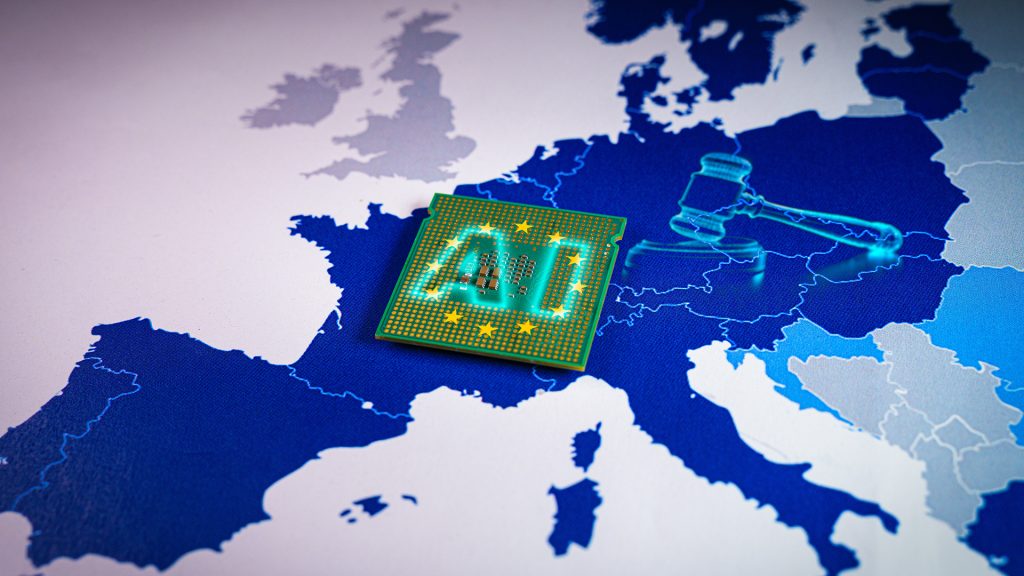The European Commission’s AI office plays an integral role in encouraging the implementation of AI law, promoting the use of ethical AI, and supporting innovation.
In recent years, rapid advances in artificial intelligence (AI) have transformed various sectors and urged regulatory agencies to establish frameworks for ethical and safe deployment.
At the forefront of this initiative is the European AI office, tasked with implementing AI laws across the European Union. The office serves as a hub of expertise to guide the governance of AI technology and ensure compliance with established regulations.
By promoting innovation and the responsible use of AI, AI offices will play a pivotal role in shaping the European digital landscape, promoting a future in which AI will actively contribute to society while reducing potential risks.
To learn more, the Innovation Platform spoke with the AI Office to discuss its initiative and its important impacts aimed at promoting AI innovation in various industries.
Can you explain in detail how the AI office contributes to the implementation of AI laws? What are the main units within the AI office and what are their respective functions?
The European AI Office is the heart of AI expertise throughout the EU. It plays an important role in implementing AI laws by supporting member state governance agencies with their tasks. In addition, rules for general-purpose AI models will be implemented. This is supported by the powers granted to the committee by the AI Act. This involves the ability to implement evaluations of general AI models, requesting information and action from model providers, and applying sanctions.
Additionally, AI firms will use their expertise to support the implementation of AI laws by contributing to the consistent application of AI laws across member states, including setting up advisory bodies at the EU level, to facilitate support and exchange of information.
Additionally, the AI office will develop tools, methodologies, and benchmarks to assess the capabilities and reach of common AI models and classify models with systematic risk. The AI Office is also leading the way in creating cutting-edge codes of practice to work with leading AI developers, the scientific community and other experts to detail the rules. Once AI Act is applied, the AI Office will investigate possible violations of the rules, including assessments to assess model capabilities, and require providers to take corrective action.
Finally, the AI Office prepares guidance and guidelines, conduct implementation and delegated tools, and other tools to support effective implementation of AI laws and monitor regulatory compliance.
The organizational setup for the European AI Office is made up of five units and two advisors, reflecting its duties. These include the “AI and Robotics Excellence” unit. “Regulation and Compliance” unit. “AI Safety” unit. “AI Innovation and Policy Coordination” Unit. “AI for Social Good” unit. Leading scientific advisors and advisor on international affairs.
What role does the AI office play in fostering AI innovation and research? Can you explain in detail about your work at the Genai4EU initiative?
The AI office promotes an innovative ecosystem of trustworthy AI to enjoy social and economic benefits.
In January 2024, the committee launched an AI innovation package that supports startups and small businesses in developing reliable AI that complies with EU values and regulations. Both the “Genai4EU” initiative and the AI office were part of this package. The “Genai4EU” initiative will contribute to the development of new use cases and new applications in 14 European industrial ecosystems and in the public sector. Application areas include robotics, health, biotechnology, manufacturing, mobility, climate and virtual worlds.
In 2025, we will ensure access to new coordinated supercomputing capacity for AI startups and industries through our AI Factory Initiative.

More generally, the committee is financially supporting AI innovation through Horizon Europe and its digital European program dedicated to Generating AI. This support will generate approximately 4 billion euros of additional public and private investments through 2027. Initiatives have also been introduced to strengthen the EU’s generation AI talent pool through education, training, skills, skills and reskilling activities. Further encouraging public and private investments for AI startups and scale-ups will be through venture capital or equity support, including new initiatives from the EIC Accelerator Program and Investeu.
Additionally, the committee is accelerating the development and deployment of general European data spaces, making it available to the AI community, and data is an important resource for training and improving models.
Finally, in June 2024, the winners established the massive AI Grand Challenge, four innovative AI startups from Europe, sharing 1 million euros and 8 million calculation time.
Can you provide some examples of places where AI office work will make the biggest difference in the coming years? Are there any initiatives already underway?
Making the EU a leader in AI innovation is a priority for the committee of the next mission, as President Ursula von der Leyen announced in her political guidelines. President von der Leyen has announced the upcoming APIL AI strategy to boost new industrial applications of AI and improve the delivery of a variety of public services, including healthcare. It will also prioritize the establishment of the European AI Research Council, allowing all AI research resources to be pooled.
How does the AI office guarantee the development and use of reliable AI across the EU? How does the AI office engage with the public regarding AI and its development?
The committee aims to develop trustworthy AI across the internal market. The AI Office will contribute to this by working with relevant public and private actors and startup communities to advance actions and policies to reap the social and economic benefits of AI across the EU, allowing access to AI sandboxes, real-world testing and other European support structures.
The office also supports the committee that encourages an innovative ecosystem of trustworthy AI, leverages the use of transformative AI tools and strengthens AI literacy to enhance EU competitiveness and economic growth.
International and field-wide collaboration is important for AI office work. Can these partnerships provide some examples of the goals of the AI office and how these partnerships support the broader AI industry?
At the international level, the AI Office contributes to a strategic, consistent and effective EU approach by promoting the EU’s approach to trustworthy AI, including collaboration with similar institutions around the world, promoting international cooperation and governance on AI, and supporting the development and implementation of international agreements on AI.
To effectively perform all tasks based on evidence and foresight, the AI office continuously monitors AI ecosystems, technology and market development, the emergence of systematic risks, and other related trends. Collaboration with various institutions, experts and stakeholders is essential for the AI office.
At the institutional level, the AI office works closely with the European Artificial Intelligence Commission, formed by member state representatives and the European Commission’s Centre for Algorithm Transparency (ECAT). An independent expert science panel ensures a strong link with the science community. Additionally, technical expertise gathers in the advisory forum to represent the balanced choices of stakeholders, including industry, startups, small businesses, academia, think tanks, and civil society. AI offices can also partner with individual experts and organizations.
It also creates Fora for the open source community, shares best practices and contributes to the development of codes of conduct and codes of practice, as well as providers of AI models and systems that include general AI.
The AI Office also oversees AI agreements. This allows businesses to engage with committees and other stakeholders, including sharing best practices and participating in activities. This involvement begins before the AI Act comes into effect and allows businesses to plan ahead and prepare them for the full implementation of the AI Act.
This article will also be featured in the 20th edition of Quarterly Publishing.
Source link

